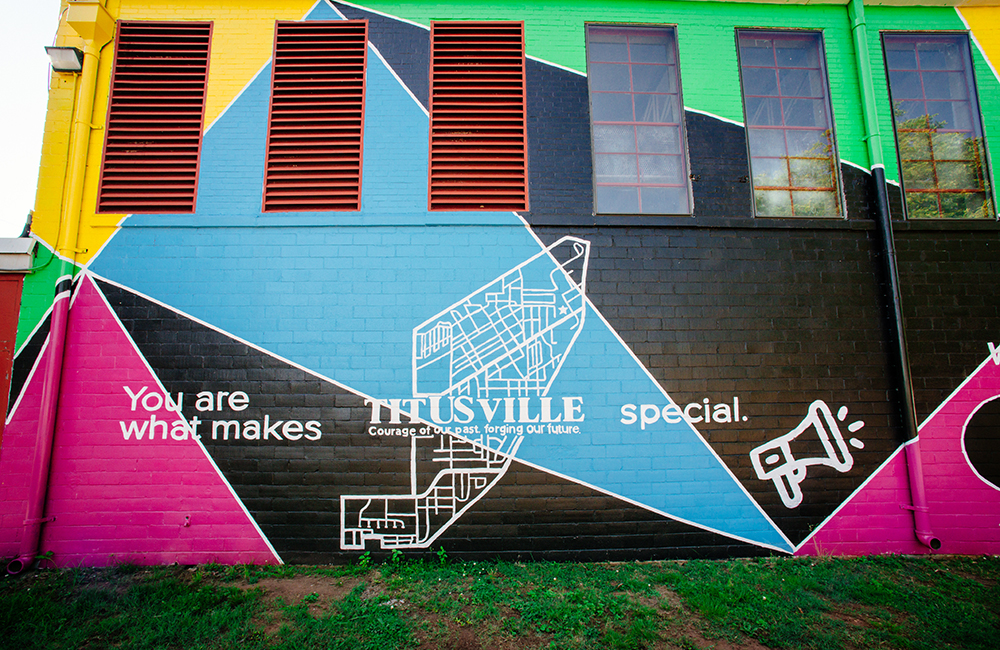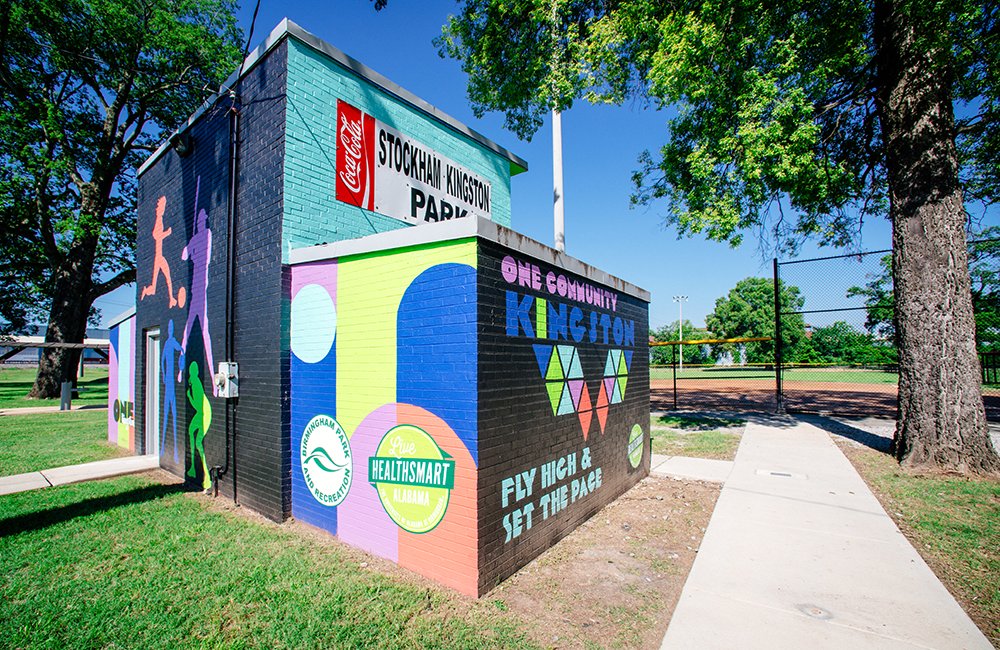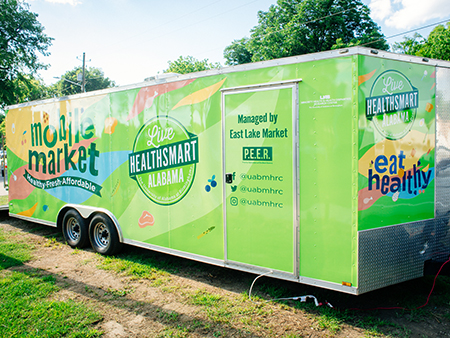-
Live HealthSmart’s goal is to improve Alabama’s national health ranking by 2030. (Photography: Steve Wood)
-
Live HealthSmart’s goal is to improve Alabama’s national health ranking by 2030. (Photography: Steve Wood)
-
Live HealthSmart’s goal is to improve Alabama’s national health ranking by 2030. (Photography: Steve Wood)
-
Live HealthSmart’s goal is to improve Alabama’s national health ranking by 2030. (Photography: Steve Wood)
-
Live HealthSmart’s goal is to improve Alabama’s national health ranking by 2030. (Photography: Steve Wood)
-
Live HealthSmart’s goal is to improve Alabama’s national health ranking by 2030. (Photography: Lexi Coon)
Live HealthSmart Alabama, the inaugural selection of the University of Alabama at Birmingham Grand Challenge initiative and key component of Forging the Future — UAB’s strategic plan, has received additional funding for two years, bringing the total funding to $5 million. The additional funding will go into effect in 2023.
Selected in 2019, Live HealthSmart Alabama is a comprehensive program that works with communities, businesses, schools, faith-based organizations and nonprofits to enhance the health of Alabamians. Not only does Live HealthSmart Alabama offer meaningful guidelines for improving individual health and support neighborhood improvements, but a key goal of the initiative is also to help organizations meet the criteria to earn the designation of a Live HealthSmart Alabama business, school or restaurant.
Bringing Alabama out of the bottom in national health rankings is not an easy task. Under the leadership of Mona Fouad, M.D., chief executive officer of Live HealthSmart Alabama, professor in the Marnix E. Heersink School of Medicine, and director of the UAB Minority Health and Health Disparities Research Center, LHSA is working to develop a sustainable and comprehensive plan that can be rolled out to cities, towns and rural areas across Alabama.
To test the effectiveness of this plan, leaders have established demonstration areas made up of communities and neighborhoods across the Birmingham area, including Bush Hills, East Lake, Kingston, Titusville and the UAB campus.
“UAB is excited about the substantial progress our Grand Challenge has made in only two years, and we look forward to all we’ll accomplish together with this additional investment, which extends funding to a full five years,” said UAB President Ray L. Watts. “We are grateful for the strong partnership of our city and county, our business community and nonprofits, and local leaders and residents as we make significant neighborhood improvements from the ground up that bring better health in our demonstration zones and ultimately in communities statewide.”
Already making an impact
Live HealthSmart Alabama has already implemented several initiatives within the selected demonstration zones.
In June 2021, Live HealthSmart Alabama celebrated phase one improvements in the Kingston community. These improvements were the culmination of a yearlong implementation project to improve the community’s infrastructure, including new and improved sidewalks, Americans with Disabilities Act-compliant street ramps, trees and flowers in Stockham Park, painted murals, new bus shelters, improved lighting in hard-to-see areas, and more.
The Live HealthSmart Alabama Mobile Market, which provides healthy, fresh and affordable food to neighborhoods with limited access to traditional grocery stores, recently expanded its footprint throughout the Birmingham area and will soon extend its model beyond Birmingham to other Alabama communities. Shoppers can purchase proteins, fruits, vegetables, grains and a variety of other healthy food options using cash, card, EBT or Double Up Bucks.
The Mobile Wellness van, which launched in October 2021, will also help to improve prevention and wellness access to residents in underserved communities.
And in September 2021, Live HealthSmart Alabama along with neighborhood residents celebrated work done in Titusville and the creation of Birmingham’s first Neighborway. The Neighborway — which runs along Kappa Avenue South and Second Avenue South from Memorial Park to the Villas at Titusville — connects a full mile of the Titusville community. This low-speed street can be safely shared by people who are biking, walking, driving, skating, jumping rope or engaging in other fun activities.
“We are extremely grateful to President Watts and UAB leadership for the additional investment in Live HealthSmart Alabama,” Fouad said. “I continue to be amazed at what we all have accomplished in a short period of time, and our model shows how an academic institution like UAB and community partners can impact so many people.”
In 2020, LHSA had to execute a significant pivot to address the COVID-19 pandemic.
After securing $4.5 million in federal and local grants, Live HealthSmart Alabama was able to implement education and prevention programs while providing COVID-19 testing access to communities where testing was not readily available.
A campuswide initiative
Involving multiple groups across UAB’s campus continues to be a pivotal goal of Live HealthSmart Alabama.
Faculty, staff and students from many of UAB’s schools who deeply engaged in service-learning and academic opportunities are making a difference in Birmingham and its surrounding areas. Many members of the UAB community have volunteered with the Mobile Market, while Into the Streets provided collaboration for neighborhood cleanup. Faculty from the Collat School of Business will be providing financial literacy classes to residents in need of those services.
Critical to the early success of Live HealthSmart Alabama, the School of Engineering, alongside several Birmingham corporations, has made its mark by utilizing talents to provide better walkways and street design in communities that desperately needed revitalizing.
“It has been a great and rewarding experience working with the City of Birmingham and Alabama corporations to plan and accomplish the built environment improvements in Kingston, Titusville, Bush Hills and East Lake,” said Fouad Fouad, Ph.D., director of the UAB Sustainable Smart Cities Research Center. “I believe these strong partnerships between academia and industry are built to last forever.”
A roadmap for success
Live HealthSmart Alabama is succeeding in making policy, system and environment changes to facilitate physical activity, good nutrition, and prevention and wellness, and it hopes to plant the seed of success not just in the Birmingham area, but statewide by 2024.
“Our goal is to offer a playbook to other areas and across Alabama,” Vice President for Research Chris Brown, Ph.D., said. “What we’re doing now allows us to show the success of the program to other potential adopters of the Live HealthSmart Alabama model.”
Brown adds that it is significant UAB leadership developed the idea of the Grand Challenge and included it in the strategic plan.
“We needed to muster together the strengths of UAB to identify and solve a big problem in our community,” Brown said. “I think we succeeded in the identification phase, and we are succeeding in the solution phase.”





